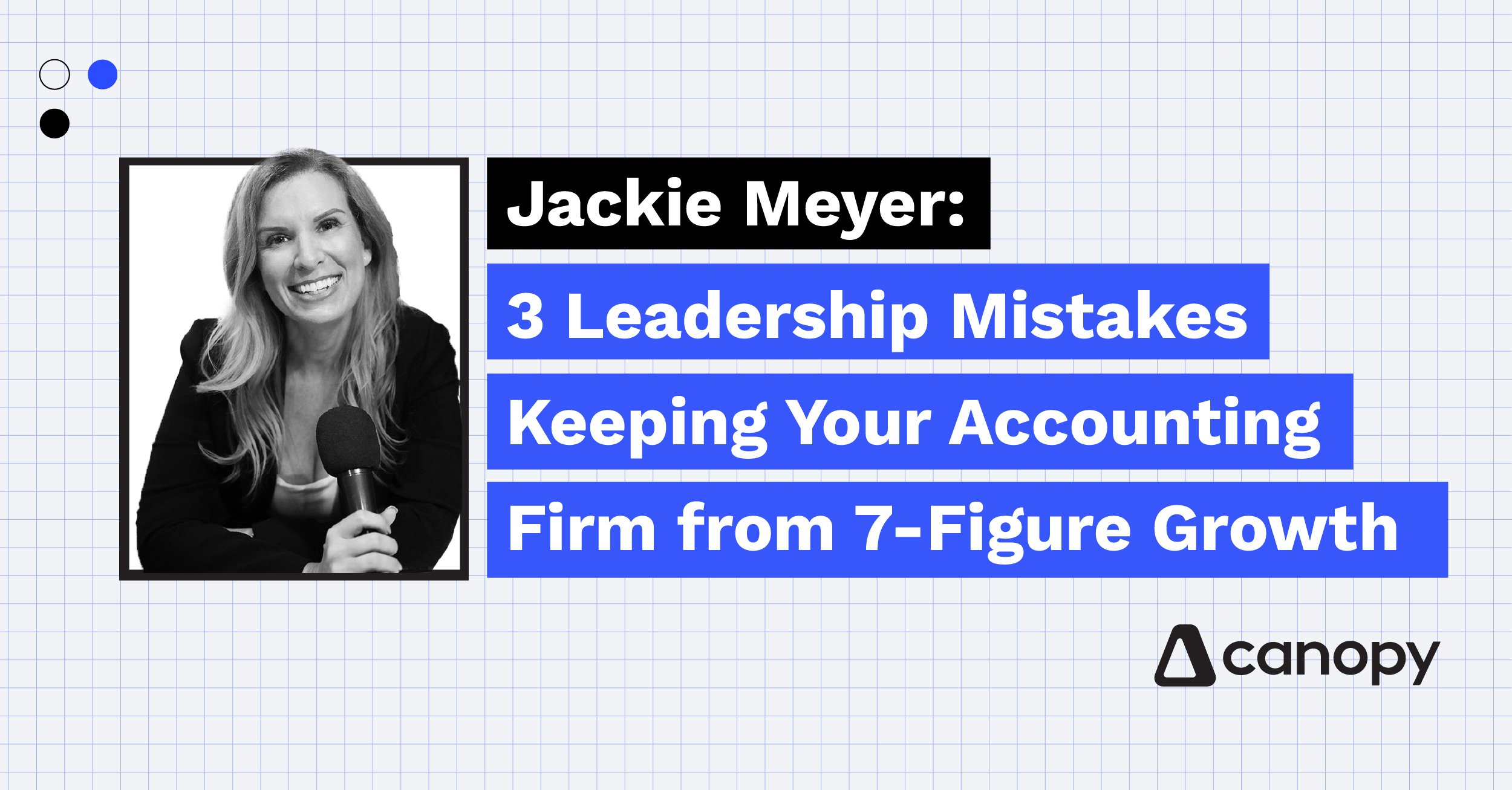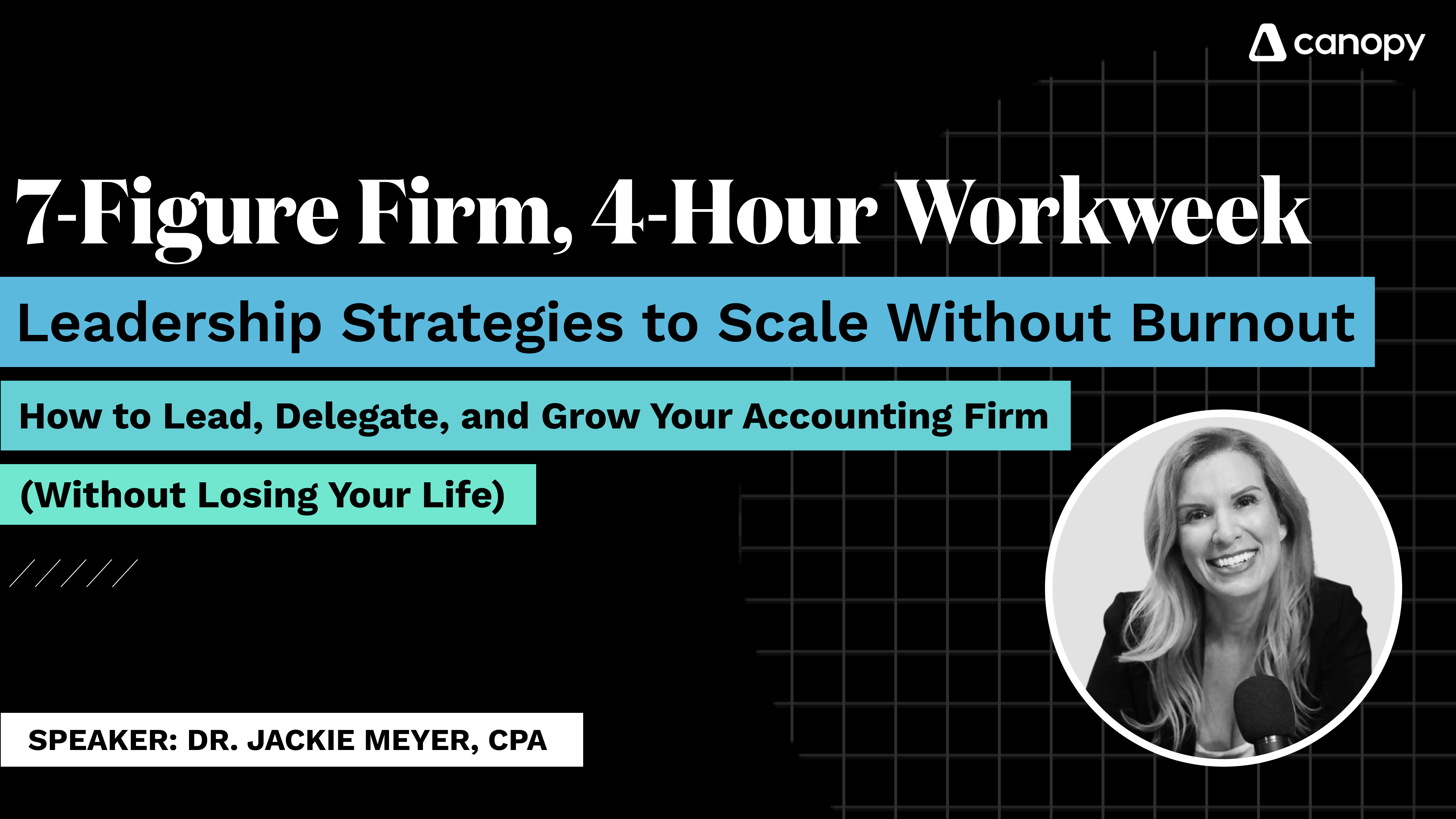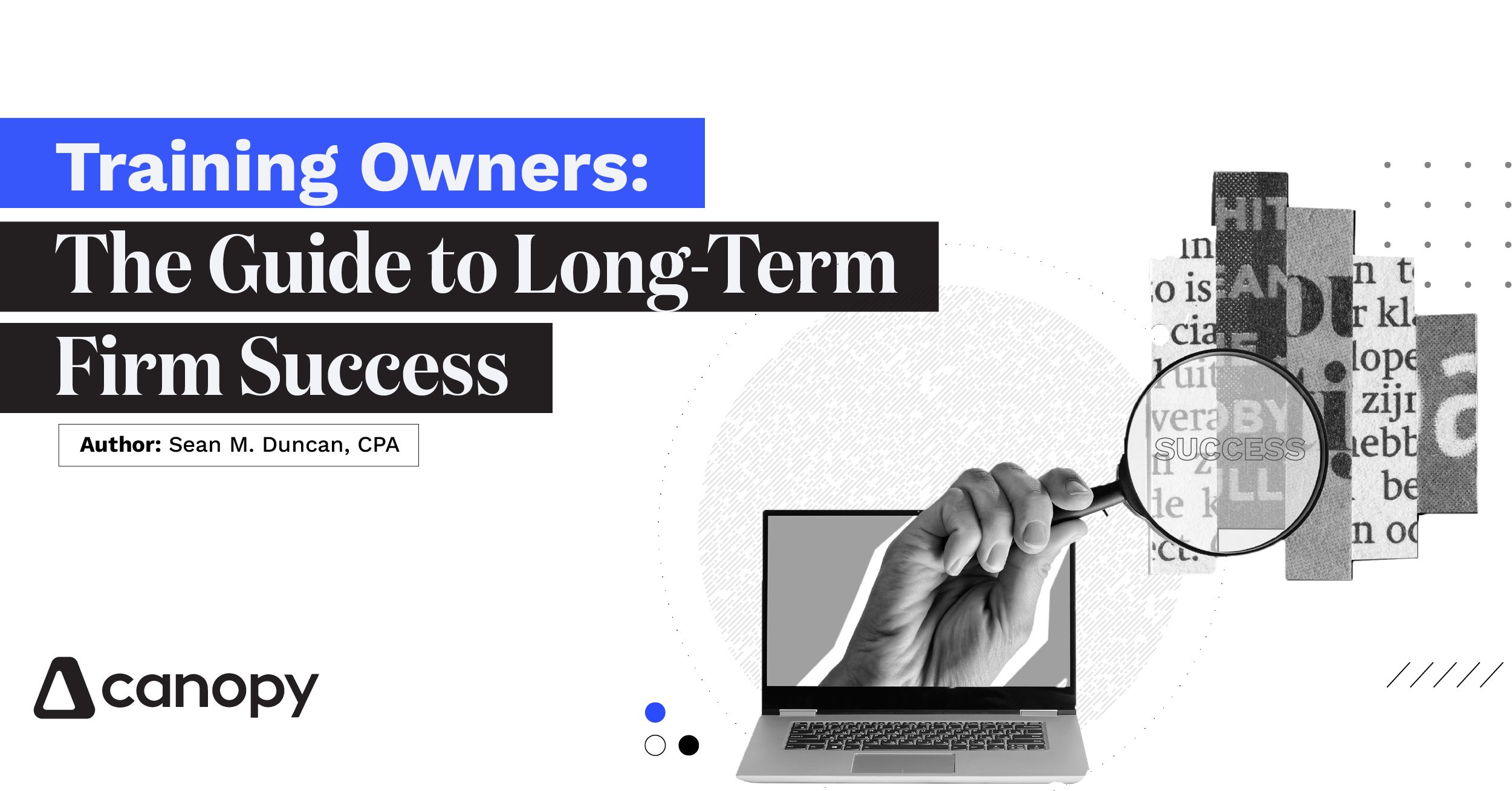"Leading without followers is just taking a walk" - John Maxwell
I still remember the years between 2013 and 2016 as some of the hardest of my life.
After launching my CPA firm in 2010 with a pretty traditional model, I found myself overwhelmed by the pressure to grow fast, keep clients happy, and stay on top of endless compliance work.
Somewhere in those years, I developed chronic fatigue and hit a level of burnout I hadn’t thought possible. Like many firm owners, I had believed that relentless effort and long hours were the only path to success. That experience forced me to step back and completely rethink how I was running my firm and leading my team. I had well over 250 clients, 3-4 full-time equivalent staff members, and I was barely hitting 350K in gross revenue.
By 2022, I had converted my niche to tax advisory and had 10 self-reliant teammates. I sold my seven-figure firm with only 56 clients, but not before making plenty of leadership mistakes along the way.
Here are three of the biggest mistakes that could be keeping your accounting firm from growing past its current ceiling. The good news? Each one of these is fixable with the right awareness and action.
Mistake #1: Doing Everything Yourself (and Failing to Delegate with Structure)
A few years into running my own firm, I realized I had created a job for myself, not a business (that technician role in the book E-Myth Revisited). I was still personally handling every client call, reviewing every tax return, and micromanaging every project. And my team? They were waiting on me to make every decision. I was the bottleneck.
If that sounds familiar, you’re not alone. Many accounting entrepreneurs fall into this trap. You can’t scale beyond your own capacity unless you let go of the day-to-day. That means you need to:
- Delegate client management to competent project managers who can own the relationship. Make it clear to clients: this is your point of contact, and they’ll respond to every inquiry within 24 hours, even if they don’t have the final answer yet. This expectation builds trust and frees you from being the sole communicator.
- Stop being the hero. You’re not helping your team by doing everything yourself. Empower them instead. Record review notes in Zoom or Loom (don’t steal the work back and not explain what was wrong).
- Create measurables for every team member. I now require monthly KPIs for all roles — it creates accountability and clarity. Here’s how to start:
Use ChatGPT or a project management tool to set monthly KPIs for:
- Staff Accountants – e.g., # of returns completed, % accuracy on first pass
- Bookkeepers – e.g., # of reconciliations completed, % on-time delivery
- Project Managers/Client Success Managers – e.g., response time, satisfaction scores, renewal rates, % of projects on track, # of escalations
- Admin Assistants – e.g., turnaround time, task completion rate
These KPIs help everyone understand what success looks like and free you from constant oversight.
And above all, don’t let the first hiccup send you back to micromanaging. Mistakes are part of the learning curve. Correct them, coach them, and move forward.
The Solo Ceiling Reality Check:
Let’s say you personally manage 200 clients at $1,000/year each. That’s $200,000 in gross revenue - and that’s your cap. Even if you work 60 hours a week, you’ll stay stuck unless you build a team.
If your goal is a 7-figure firm, you either have to build a high-performing team or raise prices dramatically through serious tax advisory value. That’s the math. You simply cannot solo your way to sustained seven-figure success.
Mistake #2: No Clear Vision or Core Values
I used to roll my eyes at "core values" exercises. They felt corporate and fluffy. That was until I learned how incredibly practical they are.
Our firm eventually adopted several core values, including: Honesty, Family First, and Tech Forward. Simple, clear, and measurable. And once we defined them, everything changed.
Here’s how we used them daily:
- If a client was disrespectful of our team’s personal time? Family First meant we had permission to fire them.
- If a staff member fudged their time sheet? Honesty was our benchmark for action.
- If someone resisted learning a new system? Tech Forward made our expectations clear.
EOS (Entrepreneurial Operating System, aka business for dummies) says to hire, fire, and promote based on core values, and that one principle alone changed everything for us. We reviewed values regularly and used them in every major decision. I couldn’t believe how such a simple system made firm leadership so much easier.
And it’s not just about values, it’s about vision. If you haven’t defined where your firm is going in the next 3–5 years, how can your team follow you?
Start here:
- Write a short vision statement (1-2 sentences) that describes your ideal firm in 3 years. Revenue, role, team size, services, lifestyle — get specific.
- Define 3–5 core values and what they mean in practice. Do this with at least your most trusted teammates, if not the entire staff.
- Use them to evaluate every hiring, promotion, and conflict.
It’s simple. But powerful. Don’t skip it.
Mistake #3: Not Being Honest About Your Leadership Limits
This one hits close to home.
As CPAs, many of us are technicians first. We’re brilliant with spreadsheets, tax strategy, or compliance. But people management? Vision casting? Building culture? That’s a different skill set.
I had to admit to myself that while I was a great technician, I wasn’t always a great leader. And that realization freed me to find the people who were and eventually go back for a doctorate in leadership and coaching.
One key lesson: If you don’t manage people well, find someone who does. Hire or promote a team manager. That’s not a weakness — that’s wisdom. At the end of the day, it’s simple math: your firm will hit a ceiling if every team issue or growth decision bottlenecks with you.
You must build a team that doesn’t rely on you to keep the wheels turning.
Leadership is also about humility. That means admitting when you’re wrong. I’ve had to apologize to staff for being short, for rushing decisions, and for overpromising. And every time I did, trust grew. Vulnerability is not weakness. It’s leadership.
And here’s the kicker: many firm owners stay stuck at Leadership Level 1 (as John Maxwell describes it) — people follow you because they have to. But to scale? You need to level up to where people follow you because they want to and because you’ve invested in the relationship.
That means making your team more important than your clients or tasks.
Yes, I said it. You’re not here to serve clients at the cost of your team. If your team is burnt out, under-supported, and constantly overruled, you’ll churn talent faster than you can hire. But if you focus on supporting and developing your team, they’ll deliver excellence to your clients — and your firm will grow.
Quick Guide: Maxwell’s 5 Levels of Leadership
- Position – people follow you because they have to
- Permission – they follow because they want to
- Production – they follow because of what you’ve achieved
- People Development – they follow because of what you’ve done for them
- Pinnacle – they follow because of who you are and what you represent
Most firm owners and firm partners get stuck at Level 1. Scaling requires moving into Level 3 and beyond.
Final Thought: Leadership Is a Skill, Not a Trait
The best news? Leadership is learnable. Every mistake I’ve outlined here is something I’ve personally made and corrected. If I can learn it, you can too.
So here’s your challenge:
- Pick one person on your team this week and assign them a measurable.
- Block 20 minutes to write or revisit your core values.
- Ask yourself: what is one leadership behavior I need to work on (or let go of) to scale?
And if you want to go deeper into all this, watch my on-demand webinar with Canopy. We walk through the exact roadmap I used to go from burnout to building and selling a 7-figure firm (spending only four hours a week in it!).
Your firm can grow. Your life can feel lighter. You just need the right mindset and team. Let’s get you there.
.jpeg)







Get Our Latest Updates and News by Subscribing.
Join our email list for offers, and industry leading articles and content.